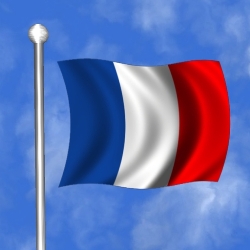iPoker On The Rise in Asia
In the early 2000s, a major online poker boom swept the globe, with people everywhere gaining access to the Internet, and finding their way to poker sites in order to play at their virtual tables. Then the United States sparked the end of the online poker boom by first passing the Unlawful Internet Gambling Enforcement Act (UIGEA) of 2006, followed in 2011 by banning all online poker sites and blocking access to them on the day that came to be known in the industry as Black Friday. Other governments around the world followed suit, and soon, the number of places where it was legal to play online poker diminished greatly.
iPoker Market Severely Reduced
We’re now seeing many countries and even some U.S. states rethinking online poker. Much of Europe has legalized online gambling, while in 2013 Nevada, Delaware and New Jersey all passed laws to regulate the industry and allow operators to gain state licenses. Although online poker is surviving in the places where it is newly regulated, activity is a far cry from what it was during the days of the boom, though. Highly fragmented markets have caused liquidity problems that stymie play and reduce player interest, with operators subsequently choosing to invest in more profitable online casino games as a result.
And Then There’s Asia
So are the boom days gone forever? They may be in the West, but many industry analysts believe that a second boom is on its way in Asia, and particularly in China, where there exists an appetite for gambling and gaming in general. While casinos are popular, e-sports were a major craze in Asian countries like Korea long before they reached the United States, and in Asia, there is a demand for online gaming, even if laws in many different nations do not treat online gaming favorably.
The appetite for online gambling in Asia was left unsatisfied for years, even though sites from the West are accessible in many Asian countries. That is because the sites that players in China and Japan see displayed are identical to the sites in the West, in other words in English, meaning many players cannot use them, or struggle to understand all of the language.
Catering to Asian Players
To meet the demand for usable online gambling sites in Asia, new operators have emerged in recent years, including GG Network and IDN Play, which both launched in the past year specifically to provide online gaming to the Asian market. Naturally, their sites feature native language, and versions of casino and poker games that are familiar to Asian players.
GG Network and IDN Play have clearly filled a void in the Asian gambling industry. In fact, a recent analysis published by PokerScout found that IDN Play has already grown to become the second largest poker network in the world, and is currently showing an average of 3,600 cash game players over a 7-day period and a 24 hour peak of 5,951 visitors, placing it ahead of 888poker with 1,900 players over the same period of time.
Only PokerStars boasts a larger network of players, and more cash game traffic, which currently stands at 13,000 visitors, and a 24 hour peak of 21,805 players. Operators in the West have taken notice, too, and some have introduced Asian versions of their interfaces to appeal to players; however, it seems that IDN Play and GG Network have already got a major foothold in the market and could be poised to be the center of the next online poker boom.
PokerStars Playing its Part
In the meantime, the world’s biggest poker room, PokerStars, has been doing its utmost to spark, as well as be well positioned to take advantage of, the next poker boom. As well as its online poker activities, PokerStars also runs three PokerStars LIVE poker rooms worldwide, including in London, Manila and Macau, and currently taking place in China is the PokerStars Championship Macau. Its tournaments are proving a popular and lucrative affair for the Amaya owned business, too, and commenting on its live operation, Fred Leung, Senior Marketing and Business Development Manager for Live Poker Events in Asia, stated:
“Our focus is really just the live events. For our team, we’re not looking at the online portion. Of course it’s PokerStars-branded and most people, especially outside of Asia, clearly make that connection with the online, but not so much out here. They may not know that it’s an online brand.”
Elaborating further, Leung said that while casino revenues in Macau took a 26 month dive that was only broken four months ago, poker is still on the ascendancy, and “is just emerging”.










